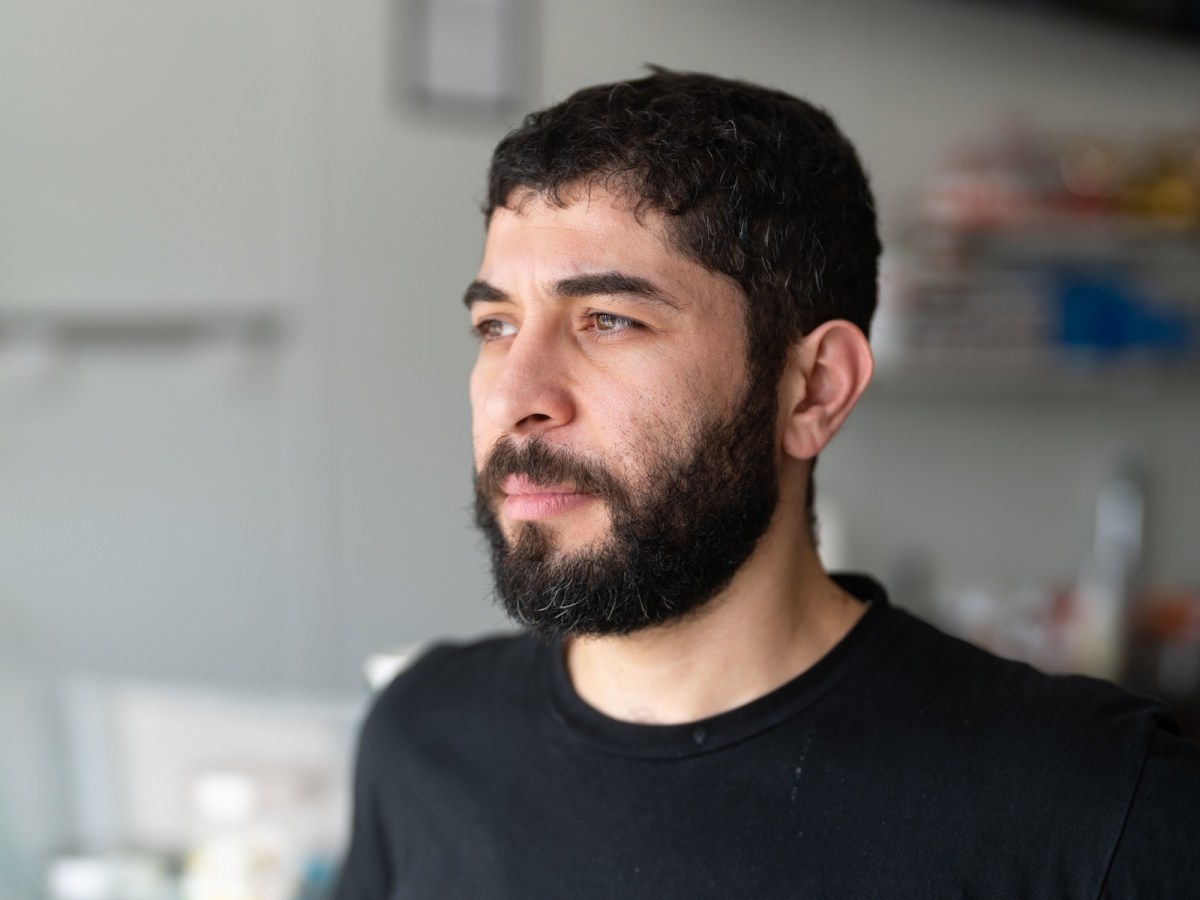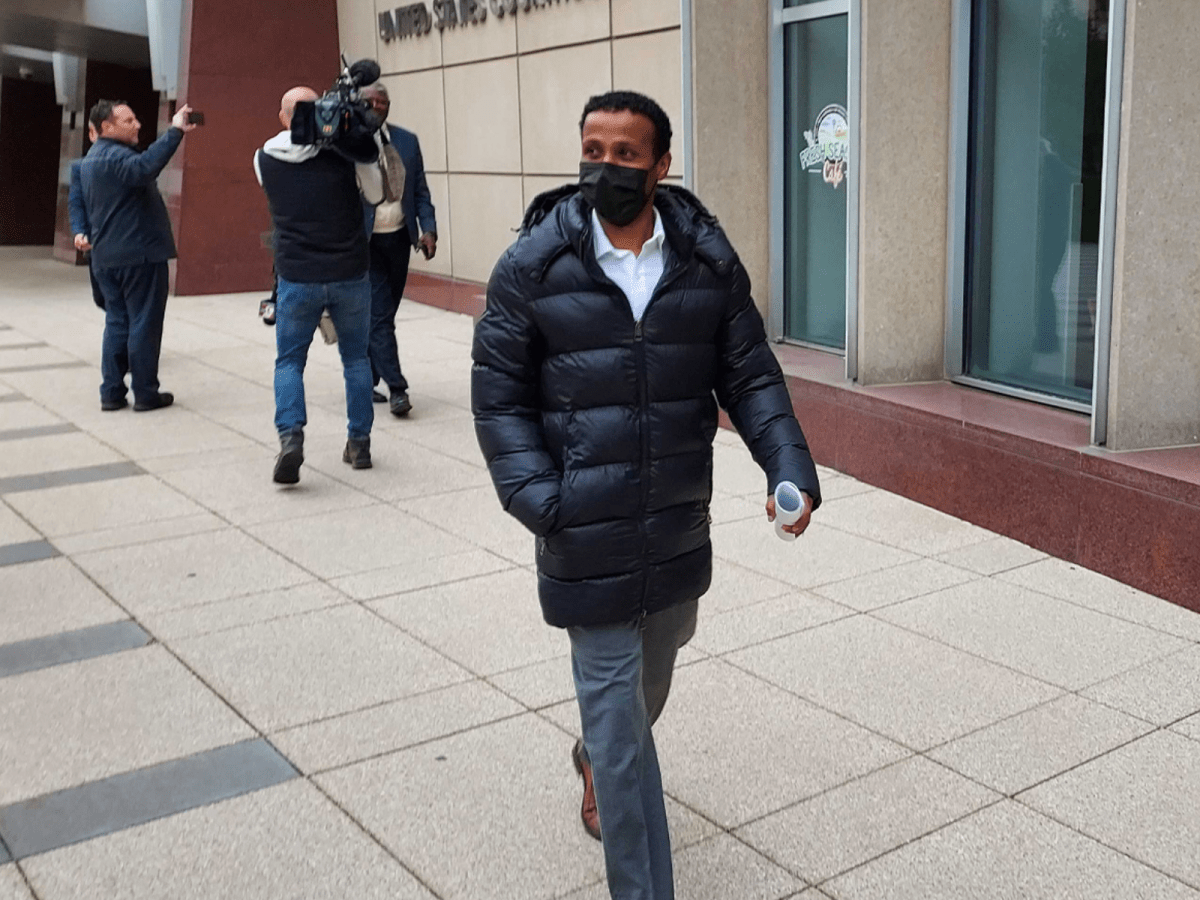Hundreds of people took to the streets of north Minneapolis on Monday in a joyous parade to celebrate Juneteenth, a state and federal holiday that marks the end of slavery in the United States.
The parade showcased the talents of young Black musicians and dancers. A troupe of drummers, their instruments strapped to their bodies, provided a rhythmic backdrop. Dance teams showed off their skills. Confidently parading down West Broadway, which was closed to vehicles for the parade, the dancers wore colorful bodysuits or Juneteenth Minnesota T-shirts, their hair decorated with frilly bows, pom poms in hand.
“It’s fun to get out here with the family and the kids and explain to them that it’s like the Fourth of July, but it’s supposed to be even bigger and more special for us,” said Erica Ellington, who came out to support her niece’s dance team. She and her nieces and nephews watched the parade from a blanket adorned with the words “Peace, Love, and Joy.”
Earlier this year, Minnesota legislators voted to officially recognize Juneteenth as a state holiday. To honor that historic move, the BOB (Black-Owned Businesses) Rewards Club hosted its second Annual Juneteenth Minnesota Block Party and parade, showcasing a vibrant array of Black-owned businesses, food vendors, and live music. The holiday has been federally recognized since 2021.
Attendees explored a diverse selection of products and services offered by more than 100 vendors. Items for sale included high-end streetwear, a variety of other fashion, and bath and body products.
Also present were representatives of nonprofit organizations focused on economic empowerment, mental health support, and home ownership in the Black community.
Juneteenth, also known as Freedom Day, is a combination of the words June and nineteenth. On June 19, 1865—more than two years after the Emancipation Proclamation was issued—Union Army Major General Gordon Granger delivered the news of freedom to the last enslaved African Americans in the United States, in Texas.
The celebration of Juneteenth is relatively new to Ladina Posey, a vendor representing the Association for Black Economic Power (ABEP). She said she did not learn about it when she was growing up and only began to explore its significance after moving to Minnesota at the age of 16.

“We have to highlight Juneteenth, because if we don’t, nobody else will,” Posey said. “It’s very important for us to recognize that it’s OK for us to actually celebrate the day that we were free. It’s OK for us to have something that feels true and dear to us. Everybody else doesn’t have to understand or agree with it, but no one will respect it if we don’t start respecting it ourselves.”
In an interview, Linda Tyler, the aunt of Amir Locke, discussed the importance of Juneteenth history. Tyler marched in the parade, wearing a T-shirt demanding “Justice for #AmirLocke.” Minneapolis police fatally shot Locke, a 22-year-old Black man, in February 2022, while executing a no-knock search warrant; Locke was not the subject of the warrant.
“The history of African Americans in this country is just as important as any other history,” Tyler said. “You can take little small steps like teaching your kids about the importance of Juneteenth. Everybody knows about the Fourth of July, but Juneteenth is just as significant.
“It was Independence Day for African Americans, particularly in the South, in Texas, when they didn’t even know that they were free yet, even though the Emancipation Proclamation had already been passed. They didn’t realize it because no one told them.”

Despite its joyous mood, the holiday also serves as a stark reminder of Black Americans’ long, difficult quest for freedom and equality. Although slavery officially ended after the Civil War, its aftermath brought forth waves of injustice and oppression, including lynchings, imprisonment, and the establishment of Jim Crow laws. Subsequently, the enduring impact of mass incarceration, discriminatory housing policies, and economic disparities have posed significant barriers to advancement in the Black community.
Amid these challenges, Black Americans come together each year to celebrate the pride and joy of Juneteenth. From firework displays and family cookouts to street parades and music festivals, the collective celebration of freedom serves as a testament to the resilience of the community.
“It is the birth of freedom for African Americans in this country, and so to be able to celebrate and to be able to talk about where we’ve been and where we’re going is important, and we need to remind people,” Tyler said.








Juneteenth events for Monday, June 19
1/ Juneteenth Block Party on West Broadway
Juneteenth Minnesota will host its annual block party, featuring two stages with live entertainment and speakers, a panel discussion about gun safety and control, and a slave history exhibition. The event will showcase dozens of Black-owned businesses and vendors, along with a mini-carnival, interactive games, DIY activities, giveaways, and community resources.
Time: 10 a.m. to 11:30 a.m. (parade kick off), 11:30 a.m. to 12 p.m. (socio-economic justice rally), 12 p.m. to 6 p.m. (festival).
Location: West Broadway Avenue between Lyndale and Emerson avenues north.
Cost: Free
2/ Soul of the Southside Festival
Celebrate Juneteenth at the Soul of the SouthSide Festival. The event will include food trucks, face painting, storytelling sessions, and dance and spoken word performances. It will also feature a Black-owned marketplace with local businesses. Live music, yoga and meditation sessions, and art exhibits will also be on hand.
Time: 12 p.m. to 8 p.m.
Location: The Hook and Ladder Theater and Lounge, 3010 Minnehaha Ave., Minneapolis
Cost: Free
For more information: Contact soulofthesouthsidempls@gmail.com.







